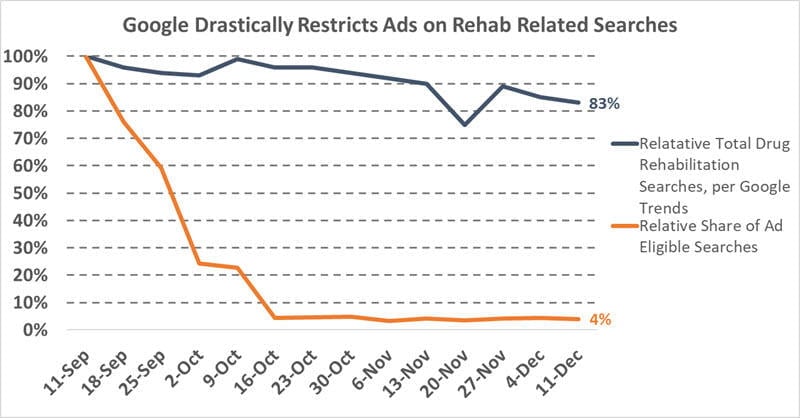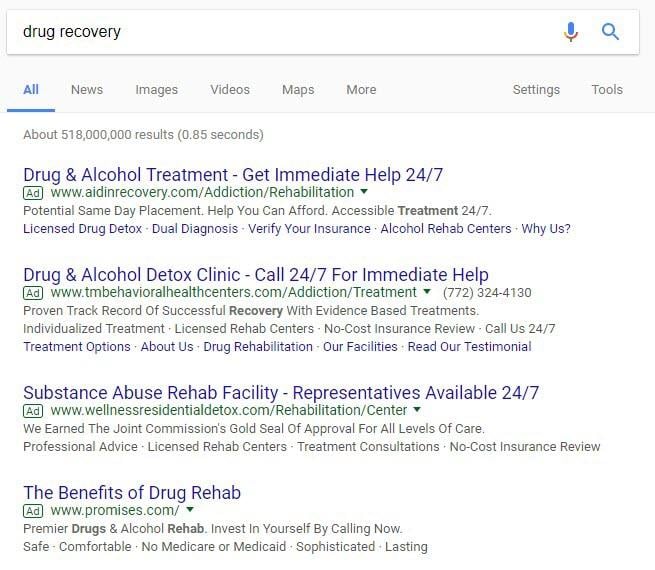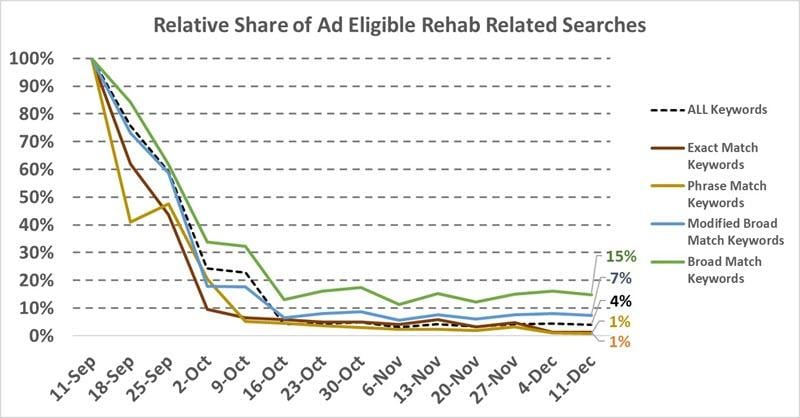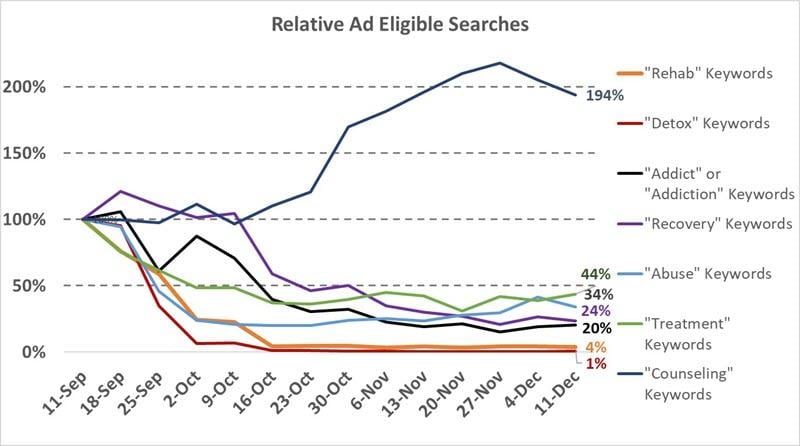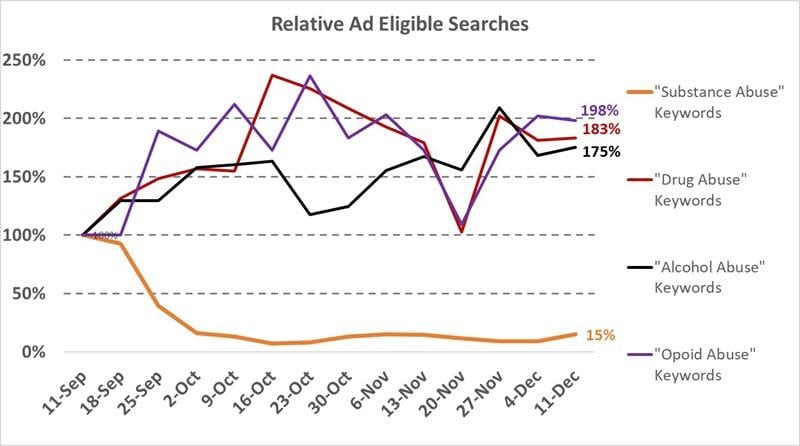The opioid epidemic, declared a national emergency in 2017, is impossible to ignore. A staggering 20 million Americans, equivalent to one in every 12 adults, grapple with drug or alcohol addiction. These figures are both significant and alarming. Addiction, a multifaceted disease, lacks a straightforward cure. However, virtually every recovery program underscores seeking help as the initial step. As these 20 million individuals, alongside their loved ones, seek support, many turn to Google for guidance.
However, recent adjustments to Google’s advertising policies have added complexity to the search results for rehab and drug treatment.
An article published in the New York Times on September 14 revealed Google’s statement about imposing restrictions on ads appearing in response to addiction treatment searches. Google argues that certain rehab facilities leveraging Google Ads (previously Google AdWords) fail to deliver the standard of care necessary for effective recovery. Consequently, Google claims to have ceased advertising related to such searches. Following an inquiry by The Sunday Times, Google implemented similar measures for rehab ads in the United Kingdom the preceding week.
Despite these claims, the complete disappearance of these ads remains uncertain. Google Trends data indicates consistent search volumes for drug rehabilitation, while data from 29 rehab facilities utilizing Google Ads shows a significant decline in ad-eligible searches for these queries – a reduction of 96%. Nonetheless, Google continues to display some ads for these searches.
Beyond their statement to the New York Times, Google has remained tight-lipped about the advertising policy modification. Advertisers bidding on rehab-related keywords received no prior notification. Their ads and keywords weren’t disapproved but experienced a sudden drop in ad impressions.
While Google undeniably restricts ads for common terms like “Drug Rehab,” as stated, a simple search reveals other prevalent queries yielding numerous rehab ads:
It remains unclear whether Google has altered the organic listing presentation for these rehab-related searches. If not, search engine users might still encounter those misleading or substandard websites.
Google also hasn’t announced further limitations for In-Stream ads on YouTube or image ads across the Google Display Network (although they maintain restrictions on advertisers targeting individuals based on sensitive information related to these issues, such as through remarketing).
Impact on Keywords
This policy shift leaves rehab advertisers, both reputable and not, in a perplexing situation. All advertisers experience reduced ad visibility for rehab terms, but the specific limitations remain ambiguous. While advertisers qualify for only 4% of searches containing “rehab,” the impact on all keywords isn’t uniform. Common searches and restrictive keyword match types, including Google’s exact and phrase match keywords, yield almost no ads. Conversely, ads are more prevalent for long-tail searches, geo-targeted terms, dynamic search ads, and modified broad and broad match keywords.
Further complicating matters, the impact on these ads varies significantly across common semantic strings. While Google severely restricts “rehab” keywords, it’s more lenient towards “treatment” and “addiction” related keywords, which still generate about a third of their previous ad volume. Some advertisers might find that “counseling” related keywords remain unaffected, leading to a doubling of ad presence.
More intricate and long-tail keywords might also evade Google’s policy. Searches for different substance abuse types receive varying treatment – “substance abuse” keywords are largely ineligible for ads, while “drug abuse” or “alcohol abuse” keywords now trigger even more ads.
The ongoing drug and alcohol addiction crisis is complex, lacking easy solutions. Seeking help and initiating dialogue are crucial first steps towards recovery. Google and its advertisers bear a significant responsibility in providing answers to those seeking assistance. This new ad policy might exclude some qualified professionals from this conversation. In a worst-case scenario, the unclear policy change could hinder compliant advertisers while creating loopholes for dubious advertisers to exploit.
Recent Update
Google recently announced a way for qualified addiction treatment providers to resume their advertising while excluding unreliable players from their platform. Now, eligible advertisers can seek certification through LegitScript to advertise on Google. LegitScript’s certification ensures that all addiction treatment resources appearing on the search results page are staffed by trained, licensed professionals, comply with relevant laws and best practices, and maintain transparency about the services offered.
As of February 2019, Microsoft Advertising (previously Bing Ads) also requires addiction treatment advertisers to obtain LegitScript certification.
Data Sources
The data presented is derived from a sample size of 29 accounts (nexus-security clients) that were advertising keywords related to drug and alcohol rehabilitation and similar services on the Google Search Network between September and December 2017. Ad-eligible searches were estimated based on the projected number of ad impressions these keywords would have garnered with a 100% impression share.
